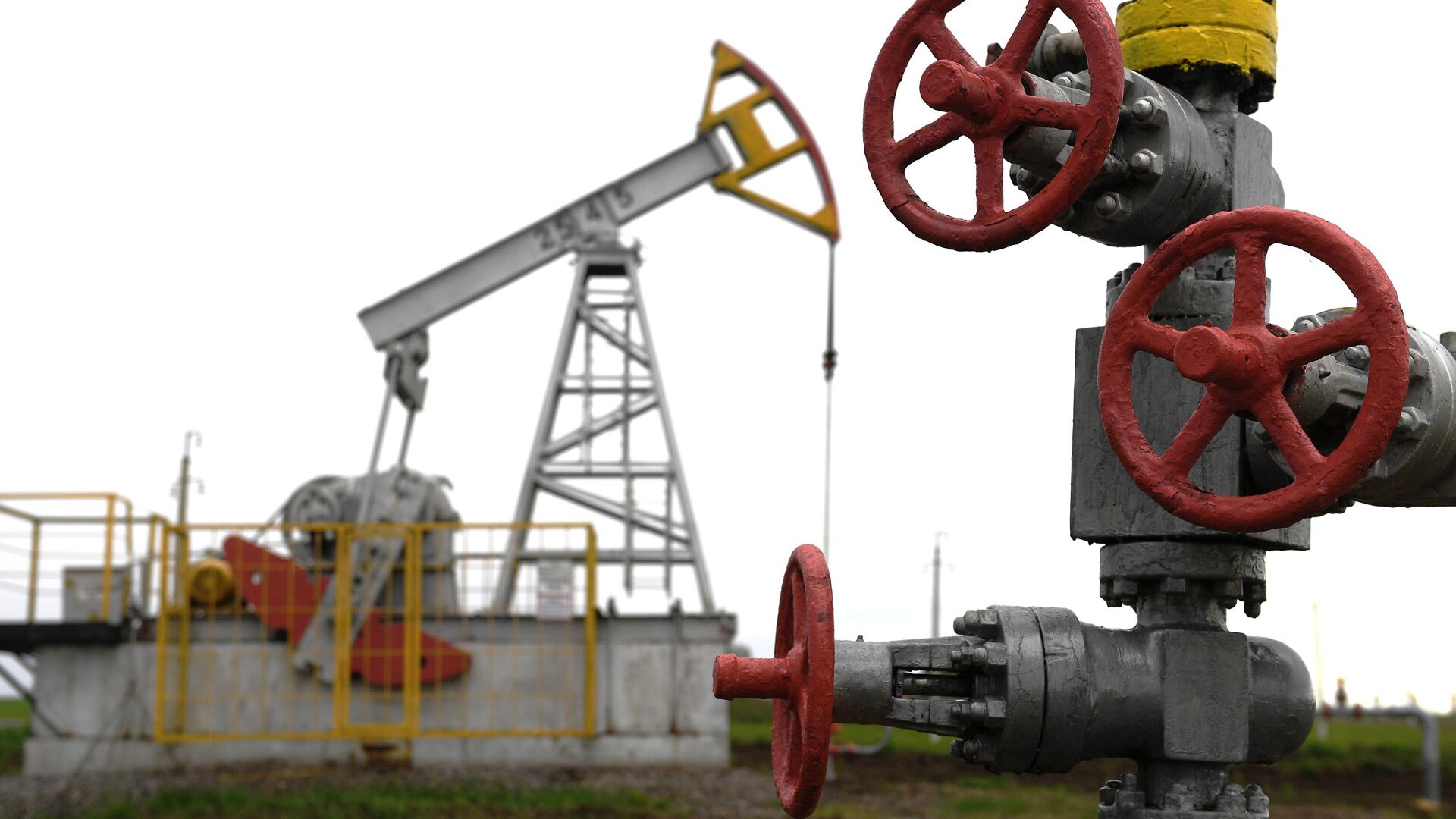https://sputnikglobe.com/20221205/japan-excludes-sakhalin-2-project-from-russian-oil-price-cap-list-foreign-ministry-1105055187.html
Japan Excludes Sakhalin-2 Project From Russian Oil Price Cap List: Foreign Ministry
Japan Excludes Sakhalin-2 Project From Russian Oil Price Cap List: Foreign Ministry
Sputnik International
TOKYO (Sputnik) - Japan has implemented a price cap on Russian crude oil at all fields, but has decided to exclude the Sakhalin-2 oil project from the list... 05.12.2022, Sputnik International
2022-12-05T11:04+0000
2022-12-05T11:04+0000
2022-12-19T13:53+0000
world
sakhalin-2
russia
oil
2022 russian oil price cap
prices
https://cdn1.img.sputnikglobe.com/img/07e6/09/1a/1101241999_0:160:3073:1888_1920x0_80_0_0_2dd30515aa8b75875f740e6f40e3d3b0.jpg
"In terms of ensuring Japan's energy security, the Sakhalin-2 oil is not subject to these regulatory measures. Thus, such operations as import, intermediary trade, transportation, customs clearance, insurance will be available for the Sakhalin-2 oil," the ministry said in a 14-page document.At the same time, importers will have to obtain a document confirming that the imported oil is actually produced at the Sakhalin-2 project. The import of Russian oil from any other field, including from the Sakhalin-1 project, at a price above the introduced cap will be prohibited.The Japanese Foreign Ministry added that restrictions on Russian petroleum products are scheduled to be introduced on February 5, 2023.Tokyo also noted that the restrictive measures do not have a specific duration, but since they are part of the sanctions against Russia, the measures are considered temporary.Last week, the European Union reached an agreement on setting a price cap on Russian oil at $60 per barrel, which went into effect on Monday. The cap will be reviewed every two months to remain at 5% below International Energy Agency benchmark. The G7 nations and Australia also agreed same day to set a $60 price ceiling on oil from Russia.Earlier in November, the United States allowed all operations related to the sea transportation of crude oil to Japan from the Sakhalin-2 field until September 30, 2023.The Sakhalin-2 project is exploring two reserves — Piltun-Astokhskoye (mainly oil) and Lunskoye (mainly gas) — in the northeast of the Sakhalin shelf. Until the start of Russia's special military operation in Ukraine in February, the project was managed by Sakhalin Energy, in which 50% plus 1 share belonged to Russian energy giant Gazprom, 27.5% minus 1 share to British-Dutch petroleum company Shell, 12.5% to Mitsui & Co. Ltd and 10% to Mitsubishi Corporation.However, in late February, Shell announced its withdrawal from all joint projects with Gazprom, including from Sakhalin-2. On August 3, the Russian government ordered the creation of Sakhalin Energy LLC — the new operator of the Sakhalin-2 project. Later in the month, Moscow also published an order allowing Mitsui and Mitsubishi to take ownership of their stakes in the new operator. In September, Shell finally withdrew from the Sakhalin-2 project.
russia
Sputnik International
feedback@sputniknews.com
+74956456601
MIA „Rosiya Segodnya“
2022
Sputnik International
feedback@sputniknews.com
+74956456601
MIA „Rosiya Segodnya“
News
en_EN
Sputnik International
feedback@sputniknews.com
+74956456601
MIA „Rosiya Segodnya“
Sputnik International
feedback@sputniknews.com
+74956456601
MIA „Rosiya Segodnya“
japan, sakhalin-2 project, russian oil price cap, foreign ministry
japan, sakhalin-2 project, russian oil price cap, foreign ministry
Japan Excludes Sakhalin-2 Project From Russian Oil Price Cap List: Foreign Ministry
11:04 GMT 05.12.2022 (Updated: 13:53 GMT 19.12.2022) TOKYO (Sputnik) - Japan has implemented a price cap on Russian crude oil at all fields, but has decided to exclude the Sakhalin-2 oil project from the list provided the energy resource's place of origin is confirmed, the Japanese Foreign Ministry said on Monday.
"In terms of ensuring Japan's energy security, the Sakhalin-2 oil is not subject to these regulatory measures. Thus, such operations as import, intermediary trade, transportation, customs clearance, insurance will be available for the Sakhalin-2 oil," the ministry said in a 14-page document.
At the same time, importers will have to obtain a document confirming that the imported oil is actually produced at the Sakhalin-2 project. The import of Russian oil from any other field, including from the Sakhalin-1 project, at a price above the introduced cap will be prohibited.
"As for the Russian oil, contracts for which were signed before the introduction of these restrictive measures, it will also not fall under the restrictions, provided it is offloaded before January 19, 2023," the document read.
The Japanese Foreign Ministry added that restrictions on Russian petroleum products are scheduled to be introduced on February 5, 2023.
"However, it is currently unknown whether any exceptions will be made for Russian oil products," the document read.
Tokyo also noted that the restrictive measures do not have a specific duration, but since they are part of the sanctions against Russia, the measures are considered temporary.
Last week, the European Union reached an agreement on setting a price cap on Russian oil at $60 per barrel, which went into effect on Monday. The cap will be reviewed every two months to remain at 5% below International Energy Agency benchmark. The G7 nations and Australia also agreed same day to set a $60 price ceiling on oil from Russia.
Earlier in November, the United States allowed all operations related to the sea transportation of crude oil to Japan from the Sakhalin-2 field until September 30, 2023.
The
Sakhalin-2 project is exploring two reserves — Piltun-Astokhskoye (mainly oil) and Lunskoye (mainly gas) — in the northeast of the Sakhalin shelf. Until the start of Russia's special military operation in Ukraine in February, the project was managed by Sakhalin Energy, in which 50% plus 1 share belonged to Russian energy giant Gazprom, 27.5% minus 1 share to British-Dutch petroleum company Shell, 12.5% to Mitsui & Co. Ltd and 10% to Mitsubishi Corporation.
However, in late February, Shell announced its withdrawal from all joint projects with Gazprom, including from Sakhalin-2. On August 3, the Russian government ordered the creation of Sakhalin Energy LLC — the new operator of the Sakhalin-2 project. Later in the month, Moscow also published an order allowing Mitsui and Mitsubishi to take ownership of their stakes in the new operator. In September, Shell finally withdrew from the Sakhalin-2 project.




